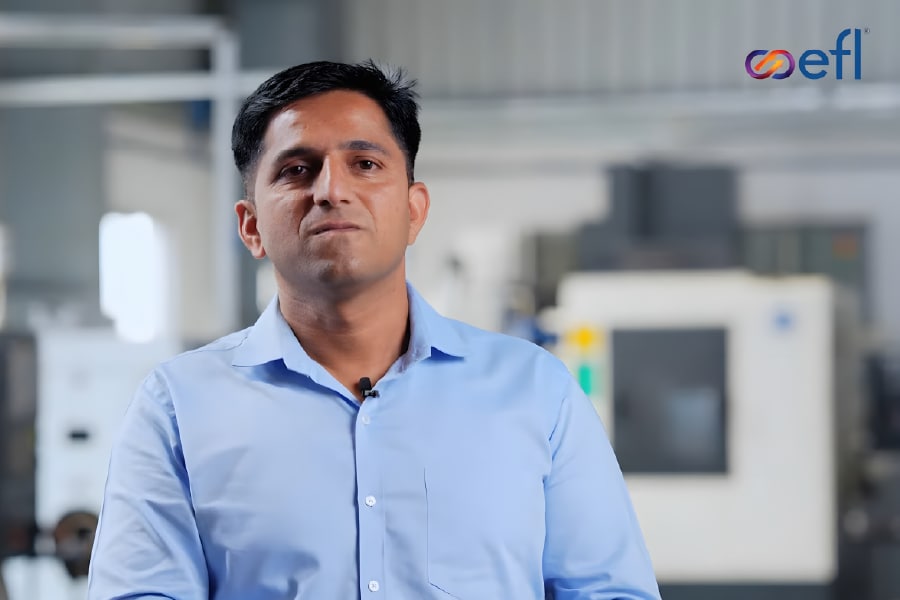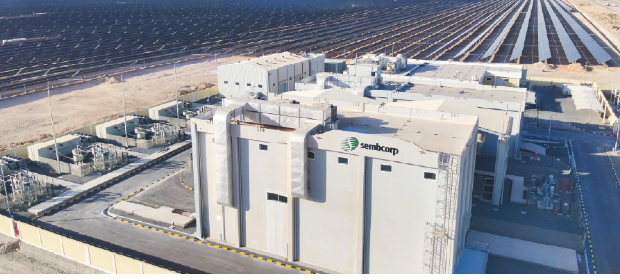Investing with Tomorrow in Mind
We aim to build a resilient and forward-looking portfolio that delivers sustainable returns over the long term.
Sustainable Living Trend
Our investment activities are aligned to four structural trends that shape our long-term portfolio construction. We expect to increase investments aligned with the Sustainable Living trend, investing into companies whose products and services seek to fulfil environmental and social objectives, as well as those that will benefit from the sustainability tailwinds.
(as at 31 March)
We deploy capital to catalyse solutions that can enable companies to transition to a more sustainable future. We tap on opportunities to invest in future growth sectors and business models, as well as encourage enterprises to transform through efforts in innovation. We also innovate and scale through partnerships which enable us to achieve outcomes unattainable by an organisation acting in isolation.
Referencing global taxonomies and industry practices, our externally reviewed proprietary classification framework identifies investments that align with the Sustainable Living trend.
These comprise sustainability-focused investments in businesses with products and services that contribute positively towards our long-term vision of net zero, nature positive, and inclusive growth, as well as climate transition investments in high-emitting sectors that are looking to transition to products and services that contribute positively to climate objectives. Climate transition investments include those in clean energy transition, power and energy infrastructure, and energy transition commodities.
As at 31 March 2025, our portfolio value of investments aligned with the Sustainable Living trend was S$46 billion2, of which S$39 billion was sustainability-focused investments and S$7 billion was climate transition investments. During the year, we invested S$4 billion in Sustainable Living trend-aligned opportunities.
Our proprietary classification framework for investments that align with the Sustainable Living trend is underpinned by environmental and social objectives, with the aim of advancing net zero, nature positive, and inclusive growth. These investments include established businesses, early- and growth-stage companies, and funds, in key focus areas such as food, water, waste, energy, materials, clean transportation, and the built environment.
1 The increase in our Sustainable Living exposure is mainly due to a reclassification of selected portfolio companies as at 31 March 2024, to better reflect their alignment with the trend.
2 Made up of listed and unlisted investments aligned with the Sustainable Living trend; and excludes other assets and liabilities.
Catalysing Climate Action
Investing for a Low-Carbon Economy
The transition to a low-carbon economy requires both growing the green economy and greening the economy.
To grow the green economy, we will continue to make targeted investments in carbon-efficient businesses and decarbonisation solutions, including the advancement of hydrogen technologies, energy-efficient solutions, and alternative production processes.
We have developed an internal framework to pilot the measurement of these investments’ climate positive impact. The framework draws references from emerging frameworks globally, and our portfolio companies and platforms that have already embarked on this journey. Given the nascency of this field, we expect to refine our approach based on insights gained from our pilot and the continued evolution of global frameworks.
Meanwhile, the transition towards net zero will not be complete without addressing the more challenging task of greening the economy. This requires deep transformation of all sectors, including the hard-to-abate and carbon-intensive sectors. Temasek is prepared to selectively invest in climate transition opportunities, even if this may result in a near-term increase in our portfolio emissions. Through such investments, we hope that our capital brings greater certainty and/or additionality to the decarbonisation trajectory, creates opportunity for value uplift, and contributes to real-world transition.
Encouraging Decarbonisation Efforts in Our Portfolio Companies
Our long-term investment horizon which can span decades, puts us in a unique position to engage our portfolio companies on their business transformation and adoption of climate mitigation actions.
Leveraging our Climate Transition Readiness Framework, we regularly engage our major portfolio companies — especially those where we see the highest potential for impact — on their climate transition plans and decarbonisation journeys.
Over the past years, we have seen our major portfolio companies demonstrate progress. This included enhanced governance and accountability over climate commitments, including senior management incentive plans linked to climate targets. Most companies have also integrated climate risk with enterprise risk management, deepened their climate scenario planning, and carried out initial climate stress tests, where relevant. A key focus of our engagement relates to climate transition planning, covering critical areas such as decarbonisation levers (including value chain), capital expenditure plans, and the development of new green revenue streams.
Enabling Carbon Markets Solutions
Carbon markets hold significant potential as an innovative financing mechanism to unlock greater capital flows towards climate solutions, where there is a large financing gap. They have the potential to bring down the green premium for innovative green technologies and facilitate nature-based projects with co-benefits for ecosystem restoration and local communities. However, carbon markets, especially voluntary carbon markets, have faced challenges over the recent years.
Greater regulatory clarity on the role of voluntary carbon markets is necessary to instil market confidence and bolster demand. Initiatives such as the Integrity Council for the Voluntary Carbon Market and the Voluntary Carbon Markets Integrity Initiative continue to push for higher integrity of carbon credit projects and greater transparency of corporate claims. Singapore has been at the forefront of advancing high-integrity carbon markets, leveraging Article 6 of the Paris Agreement to facilitate international carbon credit transactions with robust environmental integrity.
At Temasek, we take a whole-of-system approach towards scaling carbon markets:
- Demand lever: We help to strengthen demand visibility through the purchase of carbon credits for our institutional emissions and participation in relevant buyers’ coalitions.
- Supply lever: We continue to scale investments in high-integrity carbon projects through our dedicated investment platform, GenZero.
- Ecosystem lever: We advocate for high-integrity, liquid, and transparent carbon markets through targeted thought leadership efforts.
Catalysing a Sustainable Energy Transition
The energy sector holds the key to averting the worst effects of climate change. While energy transition is a global concern, Emerging Markets and Developing Economies (EMDEs) face greater challenges in balancing their decarbonisation ambitions with energy security and affordability, which are foundational for economic growth. We are taking a multi-faceted approach to address systematic barriers in the energy transition:
Accelerating Renewables Reliably
Renewable energy has emerged as the most economically viable energy option in most regions, with global renewable investments double that of fossil-related investments in 20241. The combination of affordability and faster deployment positions renewable energy to increasingly meet the growing demand, including demand from the fast-expanding Artificial Intelligence (AI) companies and hyperscalers.
However, renewables face several challenges, including intermittency issues and the need for significant grid upgrades. To address these challenges, we have supported the scaling of energy storage systems and strengthened partnerships with infrastructure investors that have deep operating capabilities to enhance execution and amplify our impact.
- Long-duration storage systems: We made follow-on investments in Form Energy, an energy storage company that develops and commercialises cost-effective iron-air battery technology to enable the development of multi-day energy storage systems for grid application.
- Renewable storage and transmission infrastructure: We partnered Energy Capital Partners to acquire Atlantica Sustainable Infrastructure, a clean energy transition company focused on renewable energy.
- Expansion of renewable capacity: We partnered Brookfield to acquire Neoen, an integrated developer and operator of renewable energy projects with a diverse portfolio of solar, wind, and battery storage assets
Diversifying Baseload Energy Options
Given the expected growth in global energy demand and the need for highly reliable, uninterrupted power supply, a diverse baseload energy mix is essential. This is particularly crucial for regions that face land constraints for renewables deployment.
Nuclear energy
We expect a renewed interest in nuclear energy, driven by technological breakthroughs, safer next-generation reactor designs, and technology-inclusive regulation. Thus, we have been actively monitoring both nuclear fission and fusion technologies, including Small Modular Reactors, and are tracking opportunities across the entire value chain. We invested in Westinghouse, a leading global company in fission reactor technology and fuel fabrication. We have also been an early investor in nuclear fusion, supporting the advancement of Commonwealth Fusion Systems’ magnetic confinement pathway to a commercial fusion power plant.
Geothermal energy
Geothermal energy offers an abundant, dispatchable, and clean source of firm energy. Recent technological advances are expanding geothermal energy’s potential to deliver round-the-clock clean energy in nearly all countries around the world. We invested in Eavor, a technology company that is developing next-generation closed-loop advanced geothermal systems.
Natural gas
Natural gas is expected to form a material part of the global energy mix for the foreseeable future. To avoid lock-in effects and methane emissions leakage, which can be more than 80 times more potent than carbon dioxide on a 20-year timescale2, it is crucial to consider (i) sourcing from gas fields with low fugitive methane emissions and ample leak prevention validated by robust field measurements; (ii) ensuring that pipelines are well maintained to minimise methane leaks; and (iii) building gas plants with eventual direct abatement strategies in mind, such as carbon capture and storage or fuel blending with biomethane, low-carbon hydrogen, or both.
We invested in Svante, a leading carbon capture and removal solutions provider. One of its initiatives included a joint development agreement with General Electric Gas Power to develop carbon capture technology for natural gas-fired turbines. We also invested in Electric Hydrogen, which manufactures, delivers, and commissions electrolysers for critical industries.
Scaling Innovative Financing Mechanisms
Emerging economies face disproportionate challenges in the energy transition, with critical projects often struggling to secure financing due to perceived or real risks. Innovative financing mechanisms such as blended finance and carbon markets can help unlock the needed capital towards transition opportunities.
Blended Finance
We partnered like-minded investors in support of Brookfield’s Catalytic Transition Fund (CTF), which blends commercial capital with up to US$1 billion of catalytic capital provided by ALTÉRRA. It focuses on deploying capital into clean energy and transition assets in emerging markets across South and Central America, South and Southeast Asia, the Middle East, and Eastern Europe.
Our collaboration with Allied Climate Partners, International Finance Corporation, and the Monetary Authority of Singapore (MAS) to establish the Green Investments Partnership (GIP) is a reflection of our efforts to expand the financing toolbox. The partnership is part of MAS’ Financing Asia’s Transition Partnership (FAST-P), a Singapore blended finance initiative in collaboration with key public, private, and philanthropic sector partners that aims to mobilise up to US$5 billion to de-risk and finance transition and marginally bankable green projects in Asia. Pentagreen Capital (Pentagreen), a joint venture between HSBC and Temasek, has been appointed to manage GIP. GIP aims to identify and deploy capital to marginally bankable green and sustainable infrastructure in Asia, such as renewable energy and storage, electric vehicle, transport, as well as the water and waste management sectors.
We joined the Transition Credits Coalition (TRACTION) as a knowledge partner to explore the use of transition credits to improve the economic viability of financing the early retirement of coal-fired power plants (CFPPs).
Our wholly owned investment platform GenZero joined ACEN, Keppel, Mitsubishi, and Diamond Generating Asia in signing a Memorandum of Understanding to explore the use of transition credits to accelerate the shutdown of a 246MW CFPP in the Philippines from 2040 to 2030. We are encouraged to see progress on demand and supply which will further support the scaling of transition credits. These include the launch of the first transition credits methodology by Verra, as well as the Kinetic Coalition, an alliance to aggregate corporate demand for high-integrity energy transition credits.
Sustainable Aviation Fuel certificates (SAFc) can harness demand from both airlines and corporates to facilitate faster scaling of Sustainable Aviation Fuel (SAF) production. We joined Green Fuel Forward, an initiative by the World Economic Forum in collaboration with GenZero, which aims to scale demand for SAF in the Asia-Pacific region. To demonstrate our commitment to use SAFc as part of our institutional carbon mitigation strategies, we purchased SAFc from Singapore Airlines that is equal to approximately 1% of our business travel-related emissions for the year ended 31 March 2025. We will endeavour to increase the amount of SAFc purchased over time. We hope that our small action can catalyse more demand from the broader ecosystem and, together, we can make a bigger and tangible impact to accelerate aviation decarbonisation.
1 International Energy Agency (IEA), World Energy Investment (2024)
2 Sixth Assessment Report of the Intergovernmental Panel on Climate Change (AR6), Contribution of Working Group I: The Physical Science Basis (2021)
Building Strategic Partnerships
We are building strategic partnerships across different investment stages to accelerate outcomes on climate and inclusive growth, crowd in like-minded capital, and tap on synergistic capabilities.
- Breakthrough Energy Ventures (BEV) focuses on early-stage investments in climate and energy innovation across manufacturing, electricity, agriculture, transportation, and buildings, backing technologies that can scale globally and compete on cost and performance. To date, BEV has invested in over 120 companies and has 10 shared investments with Temasek. These include Electra, a clean iron production company, and Rize, a technology-enabled platform for sustainable rice farming that aims to reduce methane emissions in rice cultivation in Asia.
- Decarbonization Partners, a collaboration with BlackRock, targets late-stage venture capital and early-stage growth equity investments in proven next-generation decarbonisation technologies. It currently has 11 companies in its global portfolio, including companies like Neustark, a Swiss-based carbon removal solution provider, and Guidewheel, a US-headquartered AI-powered factory optimisation platform that helps factories track and manage their energy and carbon emissions to drive both sustainability and financial goals.
- Brookfield’s Global Transition Funds I and II, and Brookfield’s Catalytic Transition Fund drive investments in core-plus infrastructure to accelerate the transition to a net zero economy, with a focus on clean energy, business transformation, and decarbonisation solutions. Investments include OnPath Energy, a UK renewable energy developer of wind, solar, and storage projects, and Leap Green Energy, a renewable platform based in India that provides clean energy solutions to commercial and industrial customers.
- ABC Impact is an impact investment firm deploying capital into businesses that address some of Asia’s most urgent social and environmental challenges. Guided by a thematic strategy, the firm focuses on climate and water solutions, sustainable food and agriculture, healthcare and education, and financial and digital inclusion. In April 2025, ABC Impact closed its second flagship vehicle, Fund II, building on the momentum and portfolio learnings of Fund I. Across both funds, the firm has invested in more than 13 high-impact companies across the region. Recent investments of Fund II include Aye Finance in India, which supports micro and small enterprises by providing access to tailored credit, and Tekoma Energy in Japan, a renewable energy platform developing utility-scale solar projects.
Establishing Climate Financing Platforms
We are committed to further driving and facilitating climate action through various financing platforms and mechanisms, mobilising capital towards decarbonisation, and increasing the bankability of sustainable projects in Asia.
- GenZero, a Temasek investment platform, is focused on accelerating decarbonisation globally. Investments include Aurora Sustainable Lands, a leader in nature-based solutions that is actively managing and conserving forestlands in the US, and CleanJoule, a US-based company focused on the production of SAF from agricultural residues. GenZero has also stepped up on efforts to advance the development of high-integrity carbon markets, with investments in companies like BeZero Carbon, a global carbon ratings agency that provides independent, science-based climate project ratings using data, models, and expert analysis to assess credibility and risk.
- Clifford Capital, a Temasek portfolio company, is an infrastructure credit platform with a sustainability focus, which provides debt financing and distribution solutions that support the energy transition and other critical infrastructure needs. In 2024, Clifford Capital Asset Management was established as an investment platform to manage funds for institutional investors. It leverages the group’s origination capabilities and institutional network to raise capital for its suite of thematic funds. In 2025, it supported Sembcorp Industries on the financing of Indonesia’s first co-located solar PV and battery energy storage system in Indonesia’s new capital city and has also supported multiple bond offerings for Greenko, a leading renewable energy developer and operator in India, to fund its renewable power and pumped hydro storage projects.
- Pentagreen, our joint venture with HSBC, focuses on accelerating the scale-up of marginally bankable sustainable infrastructure in Asia. In 2024, Pentagreen partnered Clifford Capital to provide a green loan to BE C&I Solutions for the construction of distributed sustainable bioenergy projects across Southeast Asia and India. In March 2025, it structured a joint loan with British International Investment to provide crucial mezzanine financing to ib vogt, a leading utility-scale solar development platform, for solar and battery storage projects across Southeast Asia. Pentagreen is also the manager for Singapore’s FAST-P’s GIP, which aims to increase the bankability of green and sustainable projects in Asia.
Impact Investing
Our dedicated Impact Investing team was established with the dual mandate of generating positive impact for underserved communities in emerging markets and achieving sustainable returns over the long term.
We constructed our portfolio of impact investments systematically over the years, focusing on social and climate challenges faced by people in emerging markets. This journey began with investing in solutions that address social challenges, such as a lack of essential financial or healthcare services, before expanding into climate investments to address the vulnerability of an estimated 1.2 billion people in emerging markets who face severe risks from climate hazards.
During the year, we engaged an independent impact verification provider to verify the alignment of our proprietary impact framework for impact investing with industry best practices. We achieved ratings at or above the top quartile of the relevant 2024 industry benchmark in all assessment pillars. The framework is based on three pillars: Impact Thesis, Impact Practice, and Temasek Contribution and is used to identify, assess, and monitor all impact investments.
Our portfolio consists of investments in impact funds and businesses. For funds, we work alongside ABC Impact and LeapFrog Investments as strategic partners and invested with specialist impact fund managers such as Elevar Equity and Quona Capital.
During the year, we committed to a dedicated investment vehicle with Blue Earth Capital to invest in differentiated opportunities at scale across emerging markets. We also committed to GEF South Asia Growth Fund III, which focuses on climate investments in India, and made a follow-on investment in SarvaGram, a company that provides financial and productivity enhancing solutions to rural households in India.
We build enduring relationships with our investees who provide us with valuable insights on local markets that inform the decisions we make on our future investments. In particular, on-the-ground insights of the underserved have shown the potential and vibrancy of serving such communities.
During the year, our portfolio provided essential goods and services in areas such as healthcare, financial, and climate-related sectors to 39 million1 customers, supporting 53,0001 full-time jobs.
Examples of how our portfolio has impacted the underserved include:
- Electronica Finance (a LeapFrog portfolio company), a secured Micro, Small and Medium Enterprises lender that enables small enterprises to grow with financing for the purchase of livelihood-generating machinery and rooftop solar. To date, Electronica has established over 200 offices and served over 50,000 customers.
- DCDC Kidney Care (an ABC Impact portfolio company), a dialysis chain operating in over 200 clinics providing affordable, life-saving treatments to patients with chronic kidney diseases in largely Tier 2 or higher cities in India.
- Sahyadri Farms (a GEF portfolio company), a farmer-owned horticultural producer enabling smallholders to increase their profitability by providing access to markets, processing infrastructure, and yield improvement through climate-resilient varieties of select crops. To date, Sahyadri Farms has over 28,000 registered farmers in its network.
We also contribute to various industry-leading efforts. The annual Impact Investing Roundtable, hosted in collaboration with Temasek Trust’s Centre for Impact Investing and Practices, further solidified its standing as a marquee event for impact investors in the region.
We continue to support the Global Impact Investing Network’s Impact Lab initiative to build impact performance tools.
Looking to the future, we remain committed to investing in solutions that positively impact the underserved while achieving sustainable returns over the long term. We will deepen the rigour of our impact capabilities, support thought leadership efforts, and evolve alongside the impact investing industry to drive further growth.

Suryakant Jadhav, founder of Kedar Industries, a small manufacturing enterprise that obtained a loan from Electronica Finance (EFL) to finance the installation of rooftop solar panels in his facility.
"Thanks to the Solar Panel Loan from EFL, our business is shining brighter than ever! Not only are we saving on electricity bills, we are also making a positive impact on the environment. EFL made the process seamless, and we are thrilled with the results."
- Suryakant Jadhav, Founder of Kedar Industries


